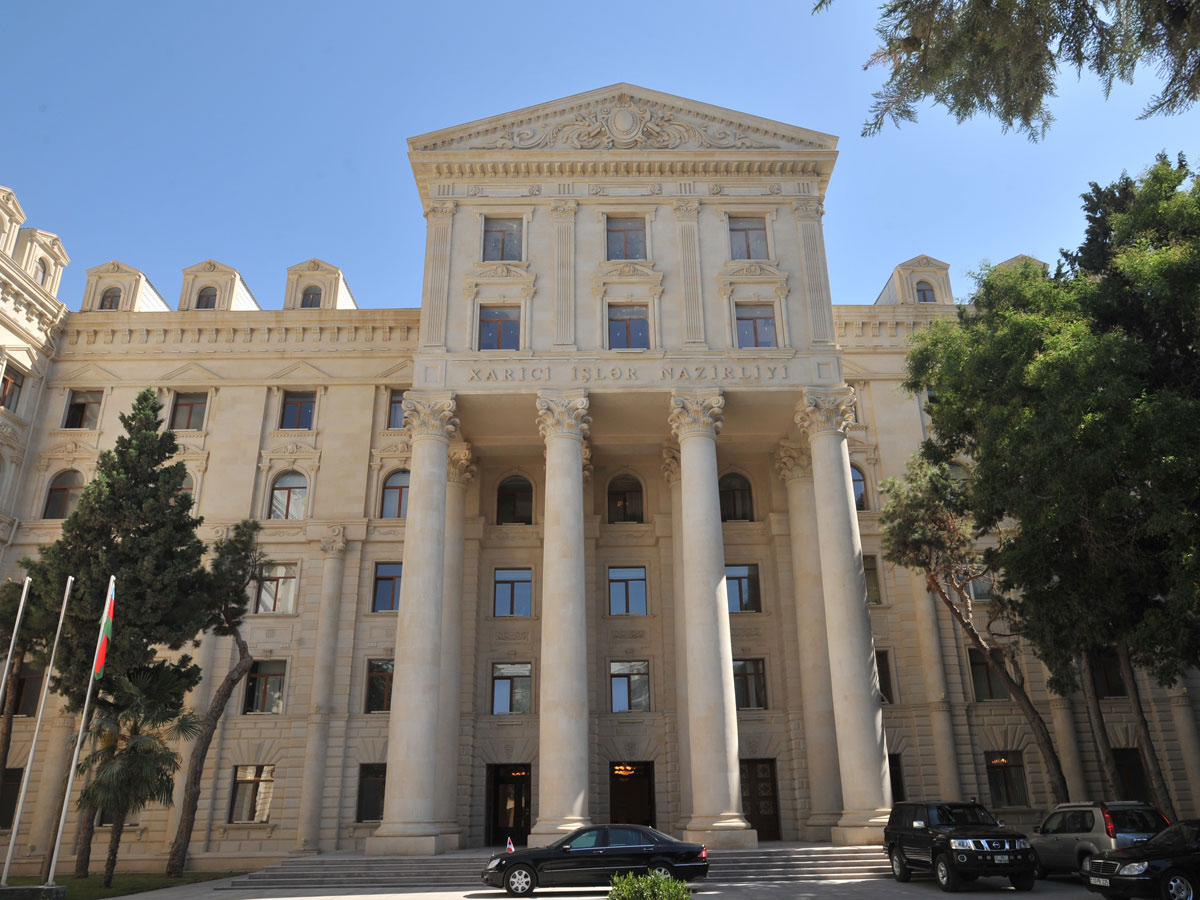Baku, Azerbaijan, Feb. 14
By Seba Aghayeva – Trend:
The illegal “referendum on constitutional changes” planned to be held in the occupied territories of Azerbaijan is a clear violation of the country’s constitution, as well as the norms and principles of international law and, therefore, has no legal effect, Azerbaijan’s Foreign Ministry said in a statement Feb. 14.
This provocative step, as well as Armenia’s attempts to change the name of Nagorno-Karabakh region, an integral part of Azerbaijan, is yet another clear manifestation of the fact that Armenia is not interested in seeking a political settlement of the armed conflict, the statement said.
Instead, Armenia pursues the path of escalation, undertakes consistent measures to consolidate the results of its occupation policy and to maintain unacceptable and unsustainable status quo, undermines efforts for the peaceful resolution of the conflict, reads the statement.
Azerbaijan’s Foreign Ministry reiterates that the illegal regime established by Armenia in the occupied territories of Azerbaijan is ultimately nothing other than the product of aggression and occupation.
In addition, Armenia illegally changes the demographic, cultural and physical character of the occupied territories, engages in economic and other activities, including transfer of Armenian population into these territories, reads the statement.
“By such actions Armenia also undermines and puts under jeopardy the regional and international peace and security,” Azerbaijan’s Foreign Ministry said.
This so-called referendum is being conducted in the seized lands in the conditions created through the use of force against the territorial integrity of Azerbaijan, ethnic cleansing and other flagrant violations of the norms and principles of international law by Armenia, according to the statement.
“We call upon the international community to reject this fabricated illegal “referendum”, exercise and exert political and diplomatic pressure on Armenia with a view to drop its futile attempts to mislead its own people and the wider international community, cease its policy of occupation and annexation, engage constructively in the conflict settlement process and comply with its international obligations,” reads the statement.
The conflict between the two South Caucasus countries began in 1988 when Armenia made territorial claims against Azerbaijan. As a result of the ensuing war, in 1992 Armenian armed forces occupied 20 percent of Azerbaijan, including the Nagorno-Karabakh region and seven surrounding districts.
The 1994 ceasefire agreement was followed by peace negotiations. Armenia has not yet implemented four UN Security Council resolutions on withdrawal of its armed forces from the Nagorno-Karabakh and the surrounding districts.
---
Follow the author on Twitter: @Asebaa






